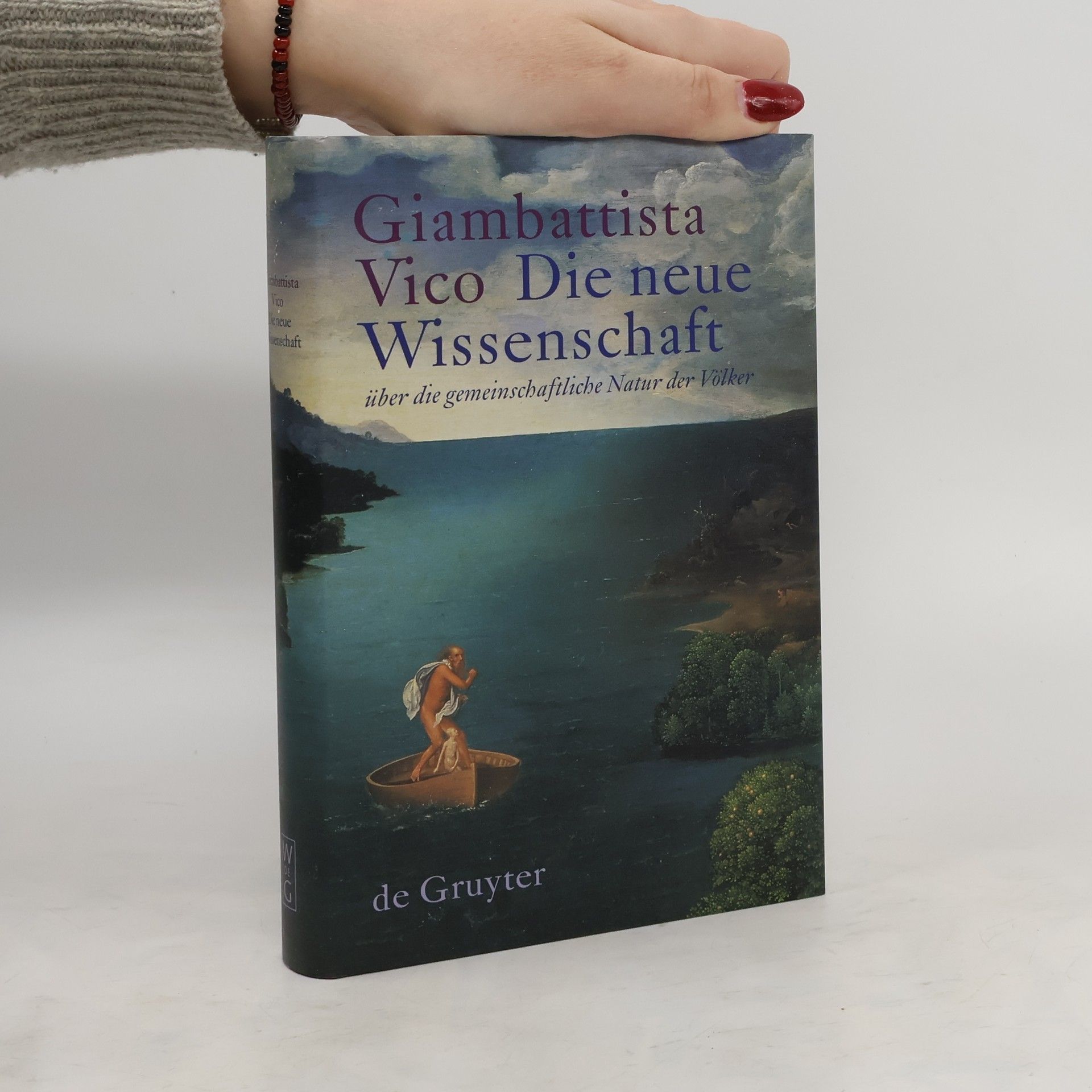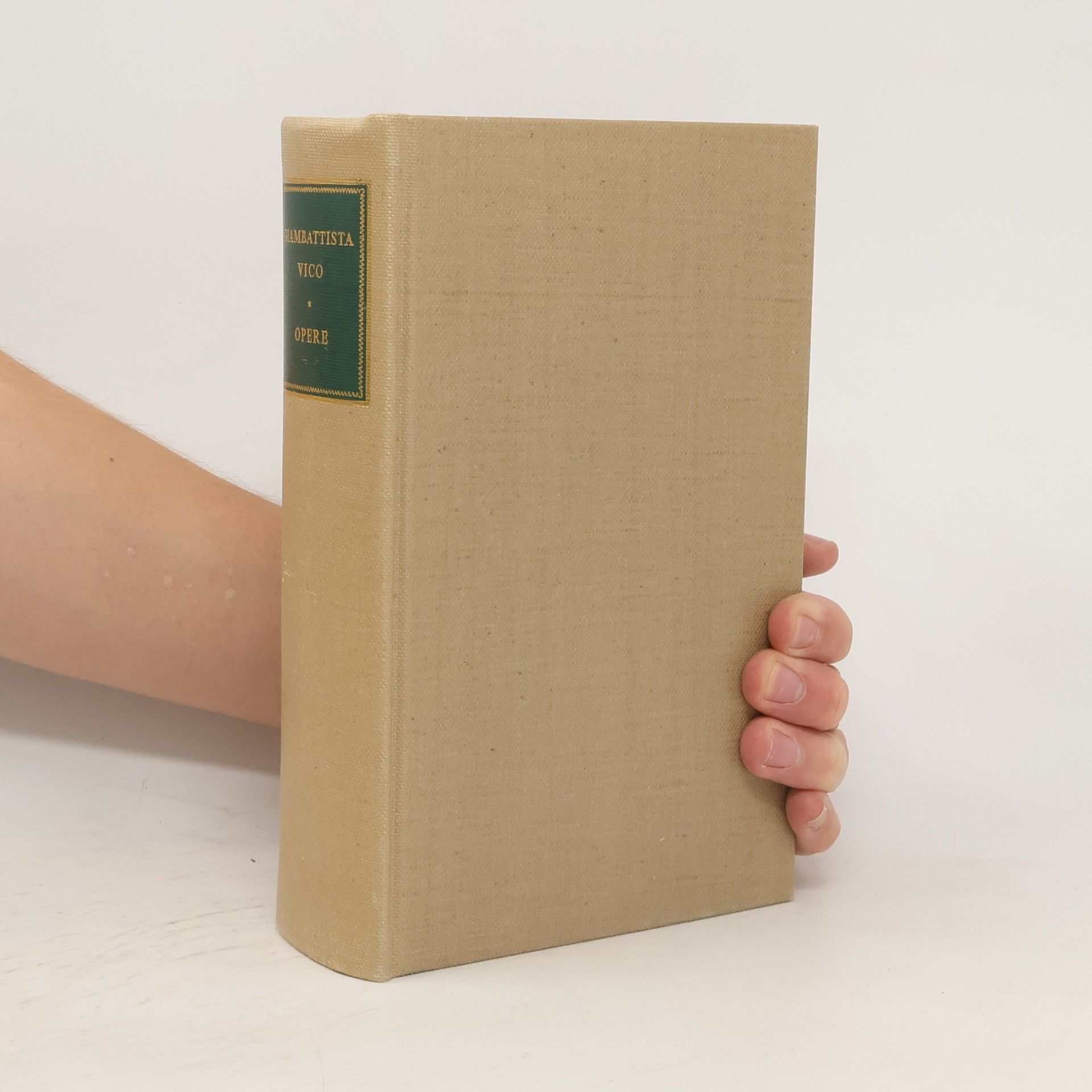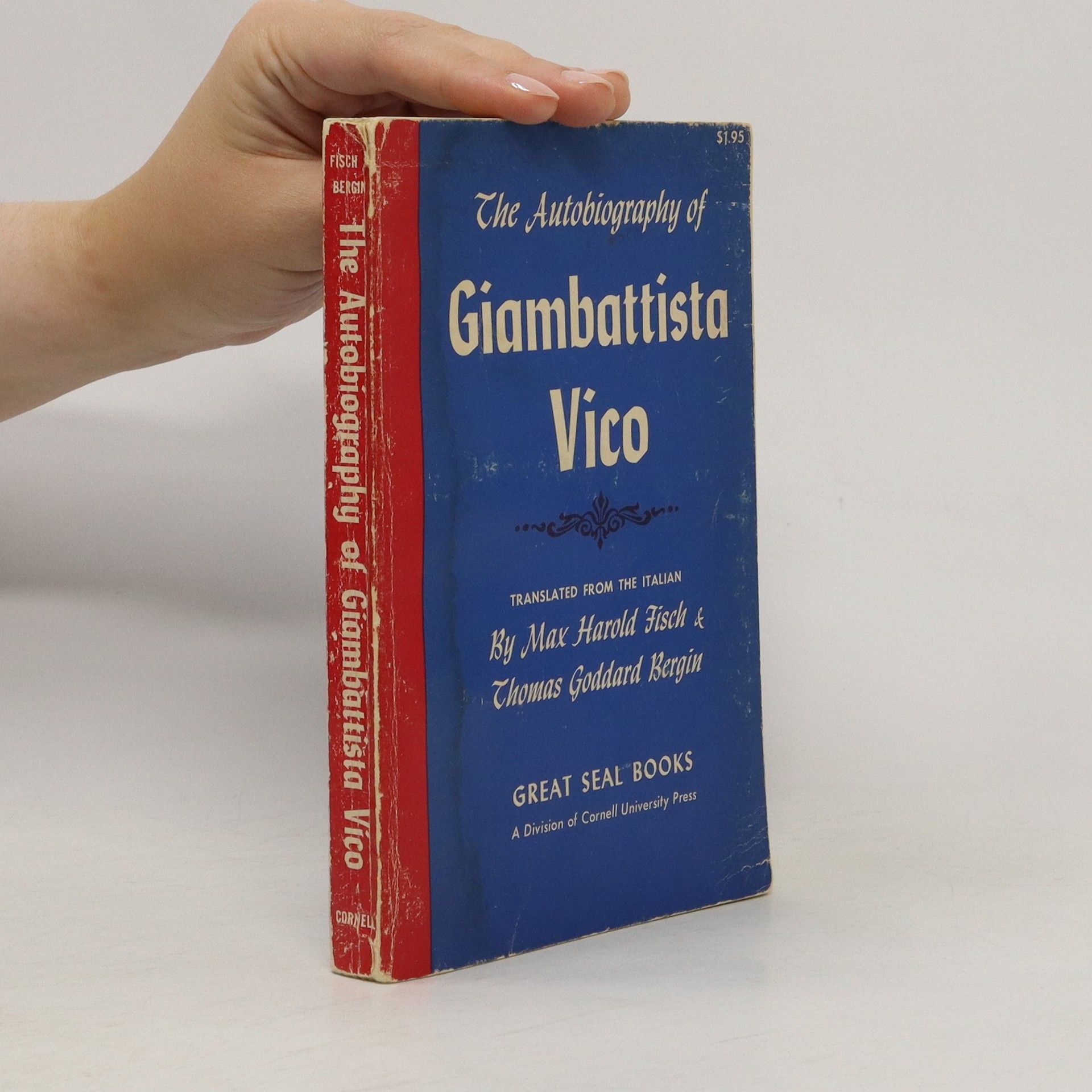The New Science
- 512 pages
- 18 hours of reading
A fresh translation of The New Science, with detailed footnotes that will help both the scholar and the new reader navigate Vico's masterpiece
Giovanni Battista Vico was an Italian political philosopher, rhetorician, historian, and jurist. A critic of modern rationalism and an apologist for classical antiquity, Vico's major work presented a "science of reasoning." He is often credited with inaugurating the modern philosophy of history, famously proposing that "the true itself is made." Vico's distinctive approach, particularly his emphasis on historical understanding and the constructive nature of truth, continues to resonate with contemporary readers interested in historicist perspectives.







A fresh translation of The New Science, with detailed footnotes that will help both the scholar and the new reader navigate Vico's masterpiece
The Autobiography of Giambattista Vico is significant both as a source of insight into the influences on the eighteenth-century philosopher's intellectual development and as one of the earliest and most sophisticated examples of philosophical autobiography. Referring to himself in the third person, Vico records the course of his life and the influence that various thinkers had on the development of concepts central to his mature work. Beyond its relevance to the development of the New Science, the Autobiography is also of interest for the light it sheds on Italian culture in the seventeenth and eighteenth centuries.Still regarded by many as the best English-language translation of this classic work, the Cornell edition was widely lauded when first published in 1944. Wrote the Saturday Review of Literature "Here was something new in the art of self-revelation. Vico wrote of his childhood, the psychological influences to which he was subjected, the social conditions under which he grew up and received an education and evolved his own way of thinking. It was so outstanding a piece of work that it was held up as a model, which it still is."
Giambattista Vico (1668-1744) ist einer der originellsten und eigentümlichsten Philosophen vor Kant und Hegel. Zwar hatte bereits Giorgio Vasari in der Geschichte der Kunst einen Zyklus von Aufstieg, Blüte und Niedergang diagnostiziert, aber erst Vico baute dies zu einem philosophischen System aus. Ohne direkten Kontakt zum philosophischen Leben seiner Zeit, schrieb er in seiner neapolitaner Isolation an seinem großen Entwurf der Zyklen von Aufstieg, Blüte, Verfall und ständiger Wiederkehr, der ihm in allen Bereichen der Kultur auszumachen schien. Bezugspunkte sind ihm die antike Mythologie und die griechisch-römische Geschichte. Insofern gilt er heute als Begründer der Geschichtsphilosophie und Vorläufer einer Tradition, die bis zu Hegel und Oswald Spenglers „Untergang des Abendlandes“ führt. Darüber hinaus bietet sein Buch aber noch viel mehr: An der Rechts- und Religionsgeschichte macht er überhaupt zum ersten Mal fest, wie diese jeweils geschichtlich bedingt sind. Was hier so komplex klingt, ist doch in der großen Auswahlübersetzung von Erich Auerbach, die selbst ein literarisches Eigenleben für sich beanspruchen darf, ein reines, intellektuelles Lesevergnügen.
Vicos »Scienza nuova« von 1725, nun erstmals auf Deutsch, ist ein bedeutendes Werk, das die politische Welt philosophisch erfassen möchte. Im Gegensatz zu Descartes, der Wissen aus reinem Denken ableitet, betont Vico die Bedeutung menschlicher Schöpfungen und kultureller Zeichen. Er verbindet Geschichts-, Sprach- und Wissenschaftsphilosophie, was die Grundlagen der modernen Kulturwissenschaft legt. In zwei Kapiteln untersucht er die Entwicklung politisch-juristischer und sprachlich-semiotischer Strukturen der frühen Völker und betrachtet diese als Teil einer universalhistorischen Bewegung der Menschheit.